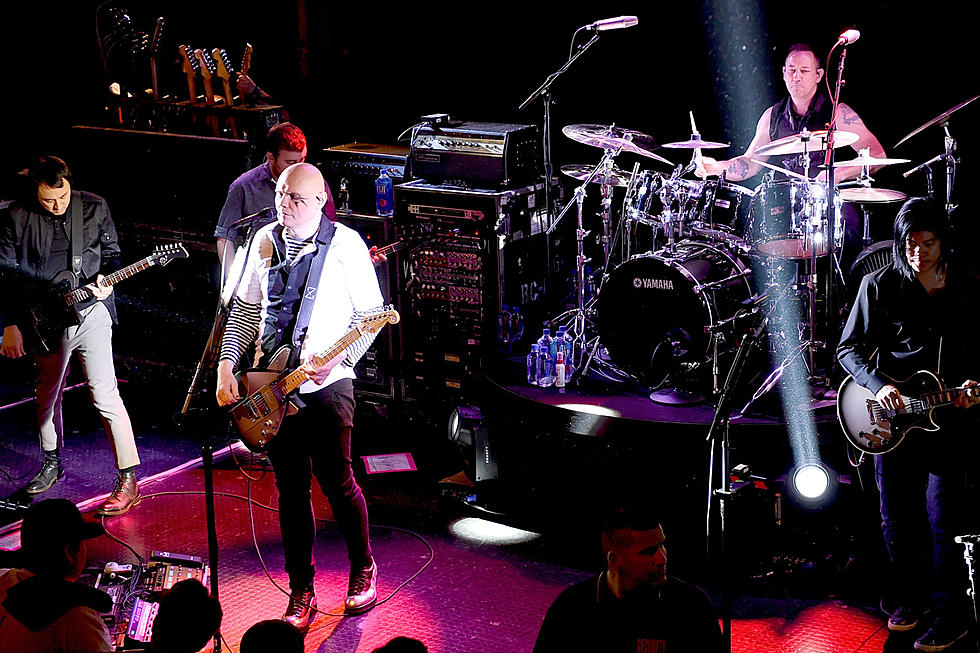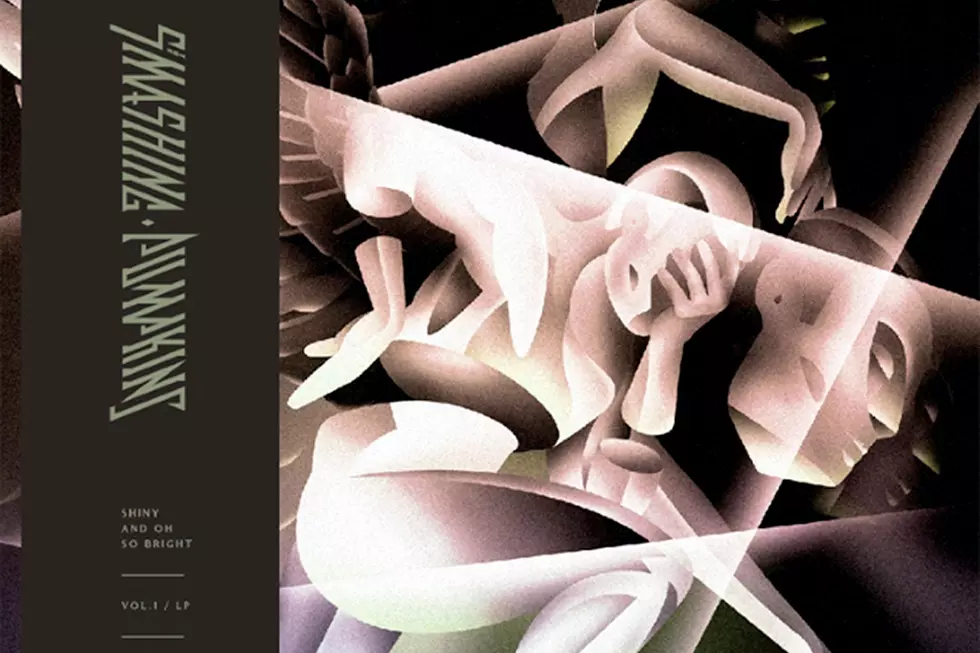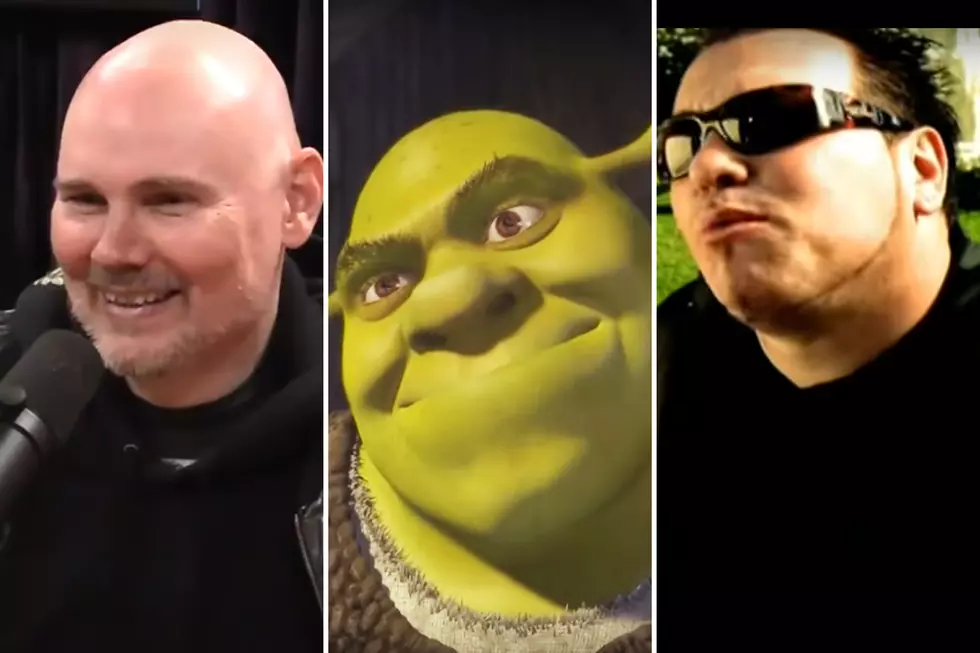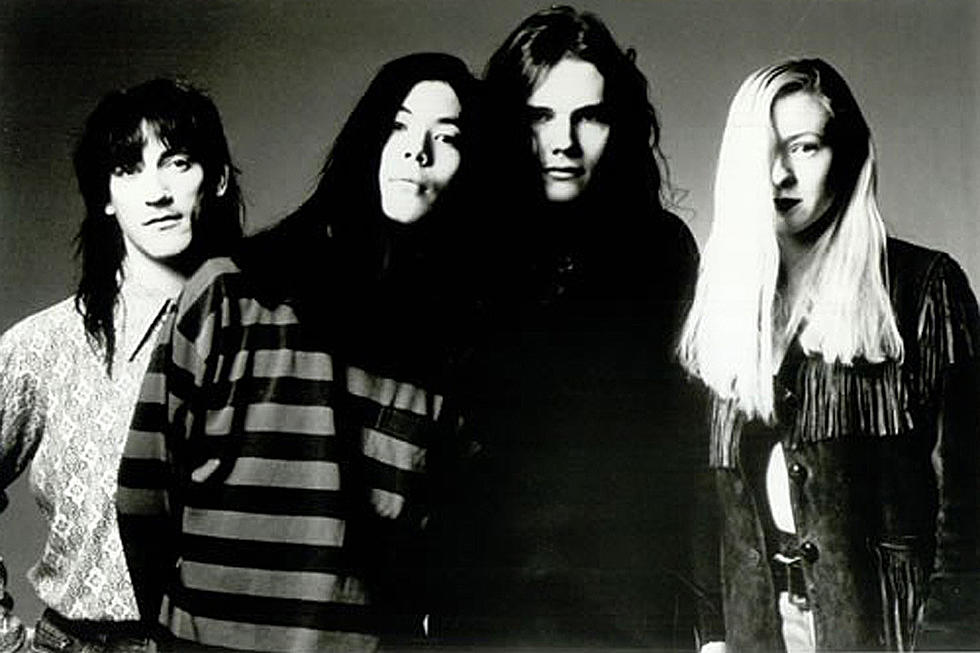The Story of When Jonathan Melvoin Died, Jimmy Chamberlin Overdosed on Smashing Pumpkins Tour
From the outside, the Smashing Pumpkins' situation couldn’t have been better. In the summer of 1996, the alt-rockers were riding the multi-platinum success of Mellon Collie and the Infinite Sadness (released the previous fall) and in the midst of a global tour. Billy Corgan and his Chicago group were one of the biggest bands in the world.
But everything wasn’t hunky dory with a couple of the Pumpkins members. During the Mellon Collie tour, drummer Jimmy Chamberlin and touring keyboardist Jonathan Melvoin had developed a penchant for dangerous drugs. Their entanglements with heroin would lead to multiple overdoses and eventually, for one of the musicians, death.
Chamberlin went back to the early days of the Pumpkins. He was hired when the trio of Corgan, James Iha and D’arcy Wretzky decided they needed more than a drum machine to play a gig. The drummer from Joliet, Ill., instantly brought the Pumpkins a more muscular sound, which would be heard on albums such as Gish and Siamese Dream. In the midst of the band’s success, Chamberlin developed a substance abuse problem, even entering rehab during the Siamese Dream sessions.
Melvoin, on the other hand, had only been brought on in late 1995. The multi-instrumentalist was hired to play keyboards on the band’s world tour, in order to bring the fuller sounds of the sonically ambitious Mellon Collie album to life. Jonathan came from a musical family. His father was “Wrecking Crew” pianist Mike Melvoin who had played on Pet Sounds and recorded with Frank Sinatra, John Lennon and Tom Waits. His sister was Wendy Melvoin, guitarist and singer in Prince and the Revolution and one-half of the duo Wendy & Lisa. Jonathan and another sister, Susannah, both contributed to Prince albums and were members of Prince side project the Family. Jonathan had also played drums for punk band the Dickies.
Wendy said that her brother didn’t have a major history with drug abuse and didn’t enter the Pumpkins tour as an addict. “The only thing I can speculate is that somehow, someway, Jonathan developed this incredible jones with Jimmy on this tour,” Wendy told Rolling Stone.
The impetus might have been when Chamberlin’s dad passed away during the tour, and he resorted to hard drugs to deal with his grief. Melvoin joined him. In the same Rolling Stone article, Corgan discussed incidents in February 1996 in Bangkok, Thailand, and in May in Lisbon, Portugal, that had scared the other members of the Pumpkins organization.
The Lisbon incident was quite serious, involving “adrenaline shots to the heart, the whole Pulp Fiction bit,” according to Corgan. The Pumpkins frontman told Melvoin he would be fired at the end of the European leg.
But when the Pumpkins began their stateside dates that summer, Melvoin was still on stage. Corgan reflected, “I liked him so much, I thought that as a friend, he deserved another chance.” Chamberlin’s issues were dealt with differently, seeing as he was a full-bore member of the band, although members apparently had serious talks about the drummer having to change his behavior.
None of that seemed to stick, though. On July 11, the night before the Pumpkins were to play their first show at New York’s Madison Square Garden, Chamberlin and Melvoin scored a particularly potent form of heroin – called Redrum – on Manhattan’s Lower East Side. Around 11PM, they returned to Chamberlin’s room at the Regency Hotel to drink alcohol and shoot up. They both collapsed.
Somewhere around 3:30 the next morning, Chamberlin woke up to find Melvoin unresponsive. Jimmy called Pumpkins security manager Bill Sitkiwiecz for assistance and the pair tried to revive Jonathan with cold water in the shower. When that didn’t work, the two called 911. Paramedics arrived and declared Melvoin dead at 4:15 a.m. A toxicology report later confirmed he died from a combination of heroin and alcohol.
When New York police found heroin residue on a needle and packets of the drug in the room, Chamberlin was arrested and charged with misdemeanor possession of a controlled substance. He was not charged with negligence in Melvoin’s death because medical professionals had determined that even if Jimmy had called the authorities the minute he woke up, it wouldn’t have been in time to save his bandmate.
The rest of the band members, who were staying at another New York hotel, were questioned about the incident and released. The band delivered an official statement expressing grief about Jonathan’s death, but were not invited by the Melvoin family to his July 15 funeral.
Melvoin was 34 and left behind a wife and a four-month-old son. Wendy & Lisa, Prince and Sarah McLachlan each wrote a song in tribute to Jonathan. McLachlan didn’t know Melvoin, but wrote her hit ballad “Angel” after reading about his drug abuse and death.
A few days after Melvoin died, the Pumpkins held a press conference to announce they were severing ties with Chamberlin, in an effort to help their friend and preserve the band. The group hired Filter drummer Matt Walker and Frogs keyboardist Jimmy Flemion for the remaining tour dates.
Meanwhile, Chamberlin entered a treatment facility. Later that year, he pleaded guilty to a lesser charge of disorderly conduct. The court determined that, as long as he completed treatment and stayed clean, he would avoid any jail time.
The Pumpkins continued on without their drummer for a few years. But, they welcomed back a clean Chamberlin in 1999, not long before the band broke up in 2000. He and Corgan continued to work together in the short-lived Zwan, and Chamberlain has been part of the Pumpkins since Corgan revived the name with a different lineup in 2005, although he left the group from 2009-15..
In retrospect, many Pumpkins fans perceive Melvoin’s death and Chamberlin’s overdose as a major turning point for the band – specifically, one that began the group’s decline over the later ’90s. Even Corgan seems to agree with that point of view.
“Did Jimmy being sacked cripple the band? Oh, absolutely,” Corgan told Uncut in 2013. “I should’ve quit right then. Instead, I doubled-down on a bad situation, and it got worse. The band went into a Cold War vibe. People stopped talking. And with walking away from rock stylistically, I was burning my bridges.”
21 Musical Collaborations That Didn’t Last Long
More From Diffuser.fm









